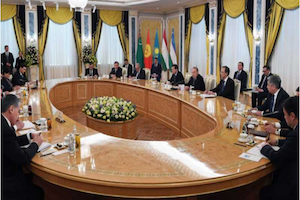Russia Moves to Strengthen its Profile in Central Asian Gas Politics, Threatens Trans-Caspian
By Azad Garibov
October 24, 2019, the CACI Analyst
With a promise to increase gas imports from Central Asia and to resume gas purchases from Turkmenistan after a three-year break, Russia’s energy giant Gazprom became increasingly active in Central Asian gas politics in the summer of 2019. This stands in contrast to Russia’s relative passivity in this area over the last decade, as its significantly lowered imports of gas from the region has allowed China to become the dominant player in Central Asia’s gas market. However, Russian gas export to Europe has hit record levels for several consecutive years, implying an opportunity to revive the practice of re-exporting Central Asian gas to Europe.
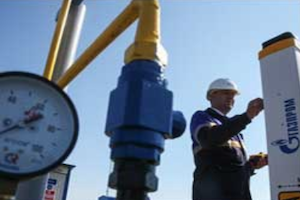
Central Asia: Delayed Consultations, Suspended Integration
By Farkhod Tolipov
July 2, 2019, the CACI Analyst
After almost a decade-long break in regional summits of Central Asian states, the ice began to melt in March 2018 when the leaders of five Central Asian states met in Kazakhstan’s capital Astana for a so-called Consultative Meeting. Many observers termed the event a revitalization of the regional cooperation process, albeit in a new temporary format for talks, and a cautious step toward a regional approach to regional problems. During that first Consultative Meeting, it was decided that the second meeting would take place in Tashkent in March 2019. However, when March came the meeting was rescheduled for April and is still delayed.
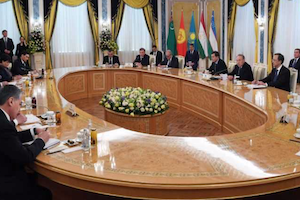
The Perspective of Trans-Caspian Gas Flow to Europe
By Ilgar Gurbanov
October 25, 2018, the CACI Analyst
On August 12, Azerbaijan, Kazakhstan, Russia, Iran, and Turkmenistan signed the Convention on the Caspian Sea’s Legal Status in Astana. The Convention’s provision endorsing the construction of a subsea pipeline raised optimism regarding the Trans-Caspian Gas Pipeline (TCGP) project, which has been stalled due to the Caspian’s uncertain status. Discussions on the TCGP have been ongoing since the 1990s, envisaging the export of 30 billion cubic meters/year (bcm/y) of Turkmen gas to Europe across the Caspian by integrating with the Southern Gas Corridor (SGC).
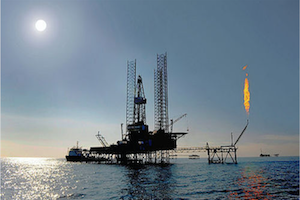
UNGA Adopts Resolution on Strengthening Cooperation in Central Asia
By Batir Tursunov
September 5, 2018, the CACI Analyst
At its June 22, 2018, plenary session, the UN General Assembly adopted a resolution on “Strengthening regional and international cooperation to ensure peace, stability and sustainable development in the Central Asian Region.” According to Uzbekistan’s Foreign Ministry, all UN members unanimously supported the draft document, developed by Uzbekistan along with other Central Asian states.
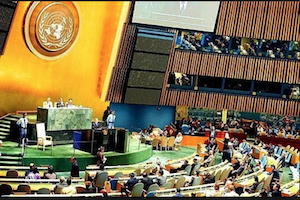
New Central Asia But Old Great Game? Ramifications of the Consultative Meeting in Astana
By Farkhod Tolipov
April 10, 2018, the CACI Analyst
On March 15, 2018, the presidents of Kazakhstan, Kyrgyzstan, Tajikistan and Uzbekistan and the speaker of Turkmenistan’s parliament gathered in Kazakhstan’s capital Astana for a long-awaited meeting. Notably, the meeting was five-lateral, not four-lateral like previous meetings, and was consultative. Over 10 years have passed since the latest regional meeting of the Central Asian leaders. Not least for geopolitical reasons, the regional integration process that started in 1991 has since declined. This consultative meeting signaled a possible revitalization of regional cooperation, while the region remains in the shadow of great power politics.
